- Home
- slideshows
- miscellaneous
- 8 tips to prepare your car for winter, according to auto experts
8 tips to prepare your car for winter, according to auto experts
Check your battery and have it replaced if necessary.

Maintain proper tire pressure.
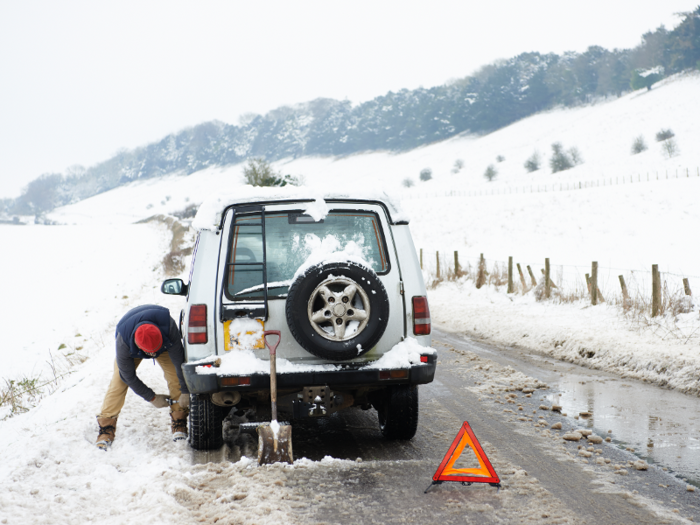
Tire pressure can be an issue during the winter due to the cold temperatures. Haynes said tires tend to deflate "once the temperature drops below 32 degrees."
"On a weekly basis, you should check your tire pressure," Haynes said. "That's because lower tire pressure decreases your gas mileage and also can wear the tires out faster."
As improper tire pressure reduces control of the car in all conditions, proper inflation is especially important in bad conditions.
Consider getting a set of winter tires.
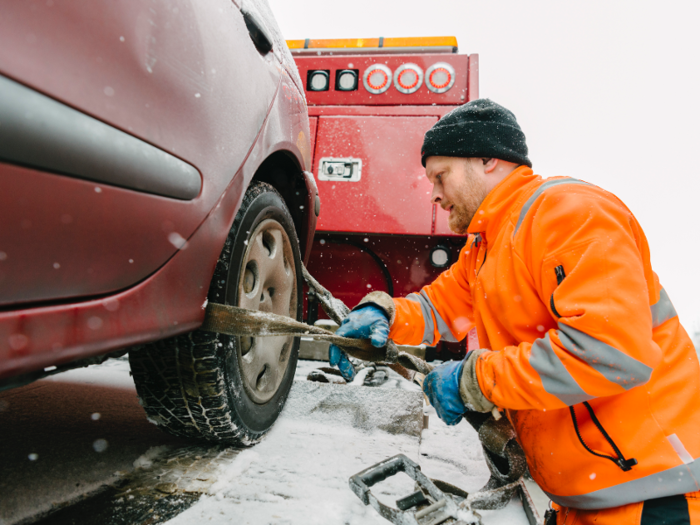
Because tires are so critical to navigation and safety while driving, it's extremely important to invest in a set that can firmly secure your vehicle to the ground and prevent skidding. According to Woody Rogers, product information officer at Tire Rack, high-tech safety systems built into a car will be rendered useless without winter tires.
"Tires focused on strong winter-season traction help keep you safe by providing better control, shorter stopping distances, more traction to get up that icy incline or power through snow, chew through slushy conditions, or grip cold wet roads," Rogers said. "A dedicated winter tire is the best when winter weather is at its worst."
Have your brakes inspected and serviced at the start of the season — and maybe again midwinter.
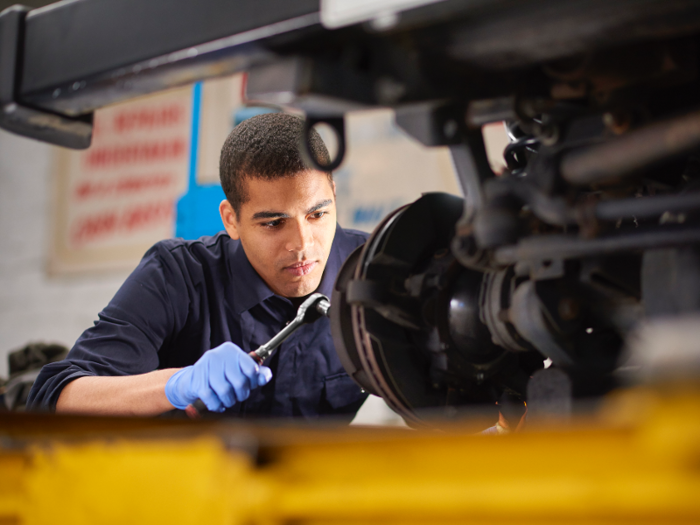
Your brakes are under much more strain during winter than in other seasons, Rogers said, so you'd be wise to check your brake systems once or twice during the season.
"With the snow, you get a lot of moisture, and then with the salt, you can get rust spots on your rotors, and that reduces how well they work," Rogers said. "Remember, winter is a season and not a single driving condition. (You face roads) cold and dry, wet, slushy, covered in deep or packed snow, icy, and an endless variety in between."
Replace brake and windshield fluids with formulas made for winter.
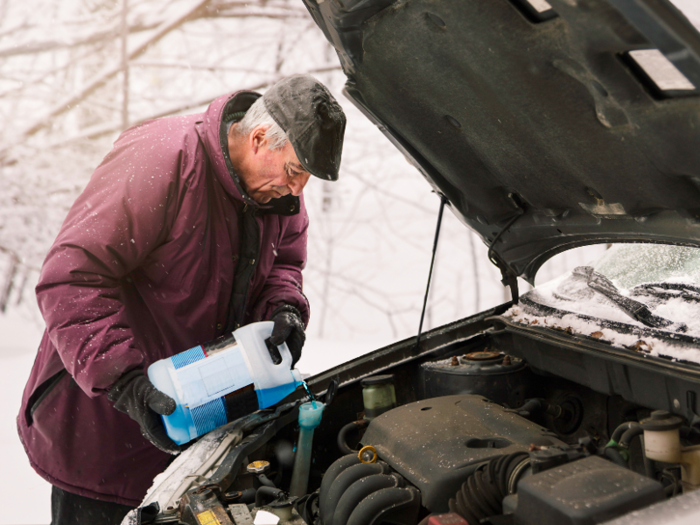
Precipitation during the winter might degrade your brake fluids, Haynes said.
"Brake fluid starts to get dirty in the winter and it gets little water molecules in it that aren't good for the car. So get fresh fluid for the brakes," Haynes said, recommending a formula rated for use in colder weather.
Haynes said that it's also important to purchase winter washer fluid because other types can freeze up in cold weather.
Rotate the tires and replace any that are in bad shape.
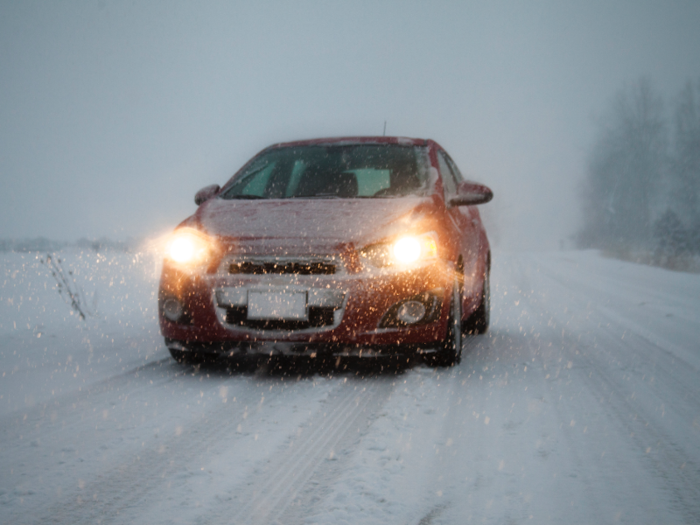
If your tires are worn out, you should replace them before the first frost. If they're in OK shape, you might be fine with simply rotating them, according to Haynes.
"Make sure you have the proper threading on your tires," Haynes said. "Have them rotated if you need to get the better tread tires on the back to avoid any spinouts, especially with deep snow. You always want to have the better tires in the back."
Get new wiper blades.
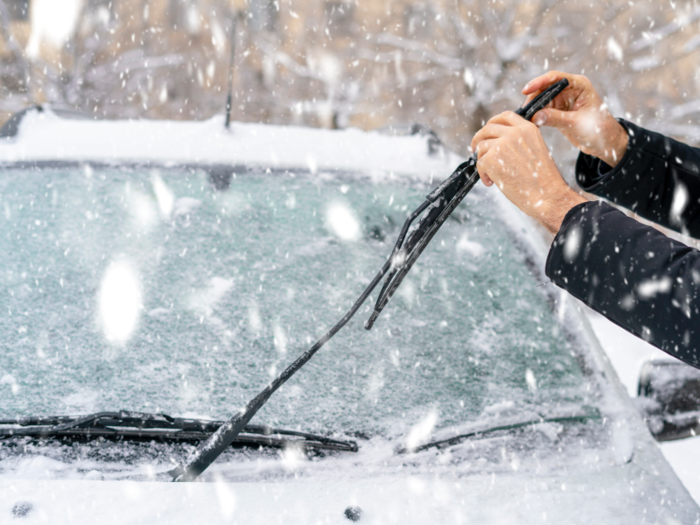
You can get a set of perfectly decent wiper blades for under $20, and if you're not sure how to put them on yourself, installation is cheap, too. Don't overlook these affordable accessories during the wintertime, as they tend to degrade quickly, Haynes said.
"You need to have your wiper blades replaced before winter hits," Haynes said. "Once snow starts falling and there's ice on the glass, blades get destroyed fast, so start with fresh wipers."
Keep the gas tank more than half full at all times, and completely full for cars that will be off the road during the winter.
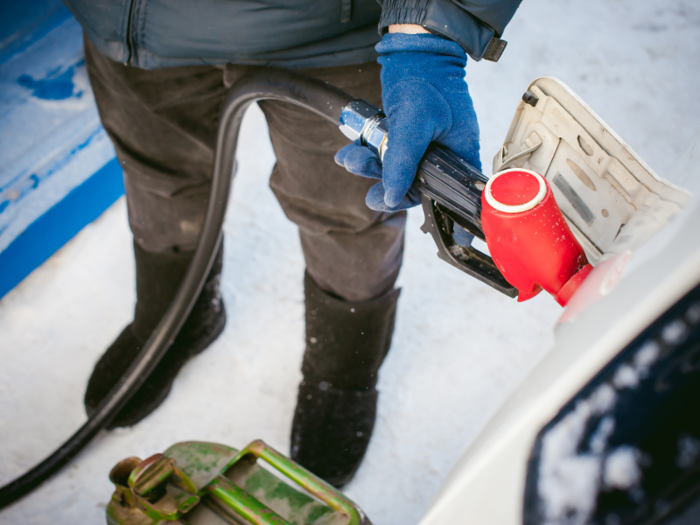
When there is a lot of empty space in a gas tank, moisture will start to build up, and this can dilute fuel and put undue strain on your car's pumps and other parts. And if that built-up moisture freezes, the damage can be much more substantial. This makes it critical to keep your tank as full as possible during the winter.
The more gas in the tank, the less water can build up. With cars that will seldom be driven during the winter, a full tank can help prevent a long-unused car from suffering damage caused by interior moisture.
Popular Right Now
Popular Keywords
Advertisement